Weaker growth and a deterioration in the public finances will force the Treasury to make an additional £4bn of savings by the end of the current parliament, George Osborne has said.
The chancellor said the cuts amounted to an additional 50p for every £100 of public spending – which he described as not “a huge amount in the scheme of things”.
He hinted that there could still be giveaways in Wednesday’s budget, including making progress on Conservative manifesto promises to raise the personal allowance – the chunk of pay workers are entitled to without income tax being deducted – and the income level at which the 40p tax rate kicks in.
Osborne admitted that his party had made “a promise to the British people” on tax cuts, which must be delivered whenever affordable.
There will also be a new help-to-save scheme, through which 3.5 million people will be able to have their savings topped up by up to £1,200 – and the minimum wage for 21- to 24-year-olds will rise by 3.7% to £6.96 an hour.
But the chancellor fuelled speculation that some nasty shocks were in store in his eighth budget when he said there was a need to “act now to make sure we don’t pay later”.
The government has already announced plans for sweeping reforms to disability benefits that will be fiercely resisted by the Labour party and charities, which argue that the chancellor is using some of the most vulnerable people in society to balance his budget. Labour calculates that 200,000 people will lose out on the benefit altogether, while a further 400,000 will receive less money.
Osborne said the world was in a difficult and dangerous place, with more uncertainty than at any time since the global economic crisis of 2008-09. “That’s why I need to find additional savings equivalent to 50p in every £100 the government spends by the end of the decade, because we have got to live within our means to stay secure, and that’s the way we make Britain fit for the future,” he told the Andrew Marr Show.
Osborne is expected to use Wednesday’s budget to:
- raise money through a series of stealth taxes including a significant increase in insurance premium tax that will hit motorists, homeowners and tourists
- crack down on a tax avoidance loophole that allows television stars to be paid “off the books”
- save £1.2bn by reforming personal independence payments to the detriment of over 600,000 disabled people
- raise the personal allowance rate at which people start paying tax by £300, bringing it closer to the £12,500 target by 2020
- raise the amount at which people are drawn into the 40p tax rate
- provide incentives to build new market towns and “garden suburbs”
- up to £2,000 in tax allowances for people who sell goods online or rent their home out for some extra money
The chancellor could also face a row over fuel duty. Osborne told the BBC that fuel duty changes had already been “pencilled in”, suggesting he could stick to the autumn statement plan to raise the tax by RPI inflation. That would mean an additional 1.3%, increasing the price per litre by 0.75p to 58.7p, according to the RAC.
But sources said he was waiting until the “11th hour” to make the decision.
A move to link a fuel duty rise to RPI would raise Osborne £346.5m compared with freezing the duty. The Treasury may feel it has more room to manoeuvre because the cost of petrol at the pump has come down significantly in parallel with the drop in oil prices and motoring costs are down over the last 10 years and more.
But the move would anger motorist groups. Richard Burnett, chief executive of the Road Haulage Association, said he would be “unbelievably disappointed” by a fuel duty increase, arguing that it would amount to £450 more per truck per year.
Howard Cox, founder of the FairFuelUK campaign, said 146 MPs – including a number of allies of Osborne – wanted to see fuel duty frozen, with around 30 actually wanting a 3p cut.
“Any opportunistic increase in fuel duty will set the economy back significantly and impact on the hardworking British public the most. Our evidence against a duty hike is incontrovertible,” said Cox.
Osborne will not want to anger backbench MPs, not least as his party is divided over the EU referendum. He has already abandoned a package of pension reforms that would have reduced tax relief for higher earners but knows he may have to upset Conservative backbenchers with some of the reforms.
However, Treasury sources made clear that the additional savings only needed to be made by 2019-20 and that there was no need to intensify the scale of the cuts already being demanded of those Whitehall departments not protected by the government’s ring fence.
The chancellor’s room for manoeuvre has been limited because the economy is £18bn smaller than the independent Office for Budget Responsibility expected, following growth of 2.8% rather than the 3.8% forecast for 2015.
The accountancy firm PWC said Osborne would now struggle to meet his target of running a budget surplus by 2019-20 and said the national debt would be £50bn higher by the end of parliament than planned.
John Hawksworth, chief economist at PWC, said that the £10bn surplus planned for 2019-20 now looked like being a deficit of £1bn. Despite the fresh setback to his deficit-reduction plans, Osborne is expected to find room for small tax cuts in the budget paid for by a renewed bid to tackle tax avoidance and the rise in fuel duties. Osborne is keen to make progress on the Conservative party’s manifesto pledge to raise both the income tax personal allowance and the higher-rate threshold.
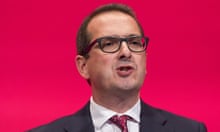

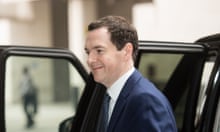

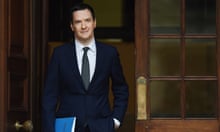
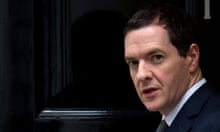


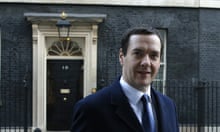
Comments (…)
Sign in or create your Guardian account to join the discussion